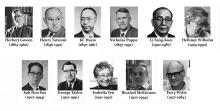Convocation 2015
David R. Knechtges
Graduating students, parents, friends, staff, and colleagues.
I am delighted to say a few words on this occasion held to honor the recipients of bachelor of arts, master of arts, and doctor of philosophy degrees as well as students who are receiving awards for their achievements in the Department of Asian Languages and Literature.
We call this occasion a convocation. This is not exactly a household word. I had a vague idea what the word means. I knew for example that “convocation” is derived from the Latin convocare which means “to call or come together.” Indeed, that is the first definition of the word given in the Oxford English Dictionary: “The action of calling together or assembling by summons.” I imagine none of you was exactly summoned here, but perhaps the invitation you received from the Department is the equivalent of a summons.
The OED continues to give other definitions of the word convocation, which it seems was primarily a religious assembly, especially in England. In the British University system, the convocation has a rather specific function. At the University of Oxford the Convocation is a formal body that comprises all graduates of the university. It is charged with electing the Chancellor of the University and the Professor of Poetry. I suspect that is not why we are here today.
I also discovered that convocation is the collective noun for eagles. I have not seen many eagles flying across our campus recently, but perhaps one or two of them are nesting on the roof of Kane Hall as I speak.
I actually had to go to the American Heritage Dictionary to get a definition of convocation that applies to our gathering: “A group of people convoked, especially the members of a college or university community who are assembled for a ceremony.” I imagine few of you knew that you had been convoked here, but I hope the experience will not be all that unpleasant.
The Department of Asian Languages and Literature at the University of Washington has a long history. I would like to reflect for a few moments on that history and what it tells us about the field of study pursued by those whom we are honoring here today.
The study of Asian languages and literature at this university goes back to 1909 to the Department of Oriental History, Literature, and Institutions. This makes us one of the oldest departments of Asian languages and literature in North America.
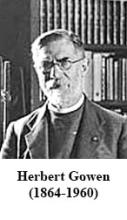
The first department was basically a one-person program directed by the Reverend Herbert H. Gowen (1864–1960). Gowen Hall, which houses the Department of Asian Languages and Literature, is named for him. Professor Gowen, who had facility in Arabic, Chinese, Hebrew, Japanese, and Sanskrit, was an example of the old-fashioned Orientalist, who taught courses on ancient Egypt, the Near East, India, China, and Japan. I am not sure how many Asian languages were taught. I believe Sanskrit was the first Asian language offered.
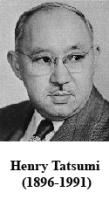
Henry S. Tatsumi (1896–1991) began teaching Japanese at the University of Washington in 1927, and Chinese seems to have been taught, if somewhat irregularly, beginning in 1928. I am pleased to say that the University of Washington has been teaching Japanese longer than Harvard. I should mention that today we will be awarding a prize established in Professor Tastumi’s name.
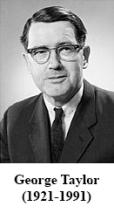
The serious scholarly study of Asia at the University of Washington began in 1939 with the arrival of George E. Taylor (1905–2000), an Englishman who had studied Chinese history at Johns Hopkins and Harvard, and who had lived in China during the early 1930s. Professor Taylor once told me that he had already been hired to teach at Columbia University when he came to Seattle for a visit. Taylor decided to call on President Sieg, who was so impressed with Taylor, he offered him a position with the promise to commit university resources to create new faculty lines in Asian studies. Although this project was interrupted by World War II, after the war, in 1946, Taylor founded two new academic units devoted to the study of Asia: the Far Eastern Institute and the Department of Far Eastern Languages. With the addition of Russian studies in 1949, these units were renamed Far Eastern and Russian Institute and Department of Far Eastern and Slavic Languages and Literature. Taylor was responsible for recruiting the distinguished group of scholars who joined the faculty in the late 1940s and early 1950s.
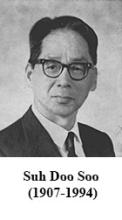
During the 1950s and 1960s, the number of languages offered expanded significantly. Instruction in Korean had already begun in 1943—the University of Washington is one of the first institutions in the U.S. to offer Korean. In 1955, George Taylor recruited Professor Suh Doo Soo (1907–1994) from Harvard to occupy the first tenure track position in Korean language and literature. My office was next to Professor Suh’s office in Gowen Hall, and I had many long conversations with him. He was one of the most learned scholars I have known in my career. He had facility not only in Korean, but also Japanese and Chinese. My wife studied advanced scholarly Japanese writings with him. I also used to consult him about difficult passages in Japanese.
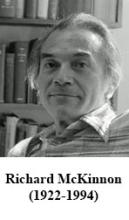
The first professor of Japanese literature was Richard N. McKinnon (1922–1994). Professor McKinnon was born in Japan (his mother was Japanese). He received all of his degrees from Harvard. My teachers at Harvard were utterly in awe of him—he was fully bilingual in Japanese and English. After completing his Ph.D. in 1951, he was recruited to the University of Washington that same year. Professor McKinnon was renowned authority on Japanese drama. In his later years, he chaired an insitute dedicated to the study the arts in East Asia.
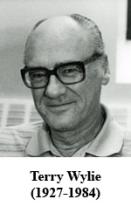
The department began to teach Tibetan with the appointment of Turrell Wylie (1927–1984), who received his Ph.D. degree here in 1958. A memorial scholarship in Terry Wylie’s name will be awarded later in the program. Instruction in Thai began soon thereafter.
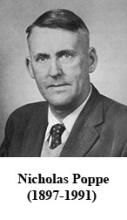
During the 1950s and 1960s we also had a strong program in Mongolian. Mongolian during that period was taught by Nicholas Poppe (1897–1991), a Russian by birth, who is generally regarded as the foremost Mongolian scholar of his generation.
In the late 1960s the Department began to offer instruction in modern South Asian languages in addition to Sanskrit. Our program in Sanskrit is generally regarded as the best in North America. The senior professor of Sanskrit, Richard Salomon, has recently been awarded the first William and Ruth Gerberding Professorship in the humanities. This honor is testimony not only to Rich Salomon’s scholarly attainments, but to the eminence of our program in South Asian languages and literature.
In 1969, the department severed its association with Slavic, and that is when we acquired our present name, Asian Languages and Literature. Terry Wylie was our first chair.
We have been the Department of Asian Languages and Literature for forty-five years. My own association with this Department began in 1960 when I was a freshman. I often have been asked how I happened to take up the study of Chinese. The answer is quite simple: it was because of the University of Washington and its faculty in Chinese.
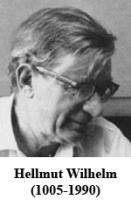
While still in high school, my main academic interest was in the sciences, specially chemistry. My mother was a registered nurse, and she was eager for me eventually to go to medical school. During my senior year in high school, I took a new course with the simple title “Far East.” During that time I had the good fortune to attend a lecture by Professor Hellmut Wilhelm (1905–1990) of the University of Washington. Professor Wilhelm was born in China in 1905. His father, Richard Wilhelm, was a German missionary in Qingdao. He eventually became one of the most famous European China scholars. In 1932, Hellmut Wilhelm received his Ph.D. in Chinese at the University of Berlin. Because of the rise of the Adolph Hitler and the Nazi party, to which he was strongly opposed, Professor Wilhelm went to China where he remained until 1949 when he was invited to take a position at the University of Washington.
At the time Hellmut Wilhelm came to lecture at my high school, which is Lake Washington in Kirkland (any Kangaroos in the audience?), the students had been assigned to read two books, Pearl S. Buck’s The Good Earth and Lao She’s Rickshaw Boy. I was mesmerized by Professor Wilhelm’s lecture. Not only did he give a highly illuminating interpretation of both works and their relationship to the times in which they were written, he displayed a remarkable literary sensiblility. I was shocked to learn that the translator of Rickshaw Boy had drastically altered the ending—to end happily rather than tragically to conform to Western readers’ tastes. Hearing how the translator had traduced his readers, I came to distrust almost any translation. I also began to think about the possibility of learning Chinese.
After his lecture, Professor Wilhelm kindly sat down with several of the students to answer our questions. At that time, I was impressed with Professor Wilhelm’s first-hand knowledge of China. Here was a man, born in China, who had lived in China during critical times of the modern era, well-read in Chinese history and literature, and able to bring his vast learning down to the level of high school students.
It was shortly after this encounter with Professor Wilhelm that I began to reconsider what field of study I should pursue in college. Although I still had a naive conception of what Chinese was all about, I decided that I must begin formal study of Chinese history, language, and literature. I thus began my undergraduate studies at the University of Washington, not in chemistry, but as a major in Chinese. I believe I was the only major in Chinese at that time.
It was not until my third year that I was advanced enough to take one of Professor Wilhelm’s courses. The first course I took was his year-long History of China. The following year I took his History of Chinese Literature. Both of these courses were lecture courses, and following the practice of the time, Professor Wilhelm lectured five days a week. There was no text book, no assigned readings, no mid-term exam, only a final exam and a term paper. Students were free—in fact encouraged—to read whatever interested them. Each lecture began with Professor Wilhelm writing on the blackboard the titles of books and articles pertaining to the topic of the day’s lecture. These titles included works in English, French, German, Chinese, and Japanese. This was for an undergraduate course!
After I received my B.A. degree in 1964, I went to Harvard in the autumn of that same year to take up graduate study in Chinese. I finished my A.M. degree in one year, and returned to Washington to resume my studies with Hellmut Wilhelm. One of my Harvard teachers even told me that I had nothing more to learn at Harvard, and I would do much better returning to the University of Washington for my doctorate. Although this may come as a surprise to some of you, the University of Washington had more faculty in the Chinese language and literature program than Harvard did at that time.
I completed my Ph.D. under Hellmut Wilhelm’s direction in 1968. After teaching three years at Yale and one year at the University of Wisconsin in Madison, I returned to Seattle to take up the post that Professor Wilhelm had vacated after his retirement. I have occupied this post until my retirement last year. If I had not met Hellmut Wilhelm at Lake Washington High School in 1960, I probably would have not have taken up the study of Chinese. I am sure my career path would have been much different.
I am very proud to have been a student and faculty member in the Department of Asian Languages and Literature. I would like to spend a few minutes reflecting on the reasons why I am so proud to have been associated with this department for over half a century.
First, as I have already noted, this Department has a long history. It is one of the oldest departments of Asian languages and literature in the United States. I was very fortunate to be a student at a time when the department had a galaxy of internationally renowed scholars. Almost all of them were not originally from the United States, but internationally renowned scholars who had left their home countries during or after World Word II.
During my time as a student here I had the privilege of studying with several scholars who came from Asia. They included two famous scholars from China, Li Fang-kuei (1902–1987) and K. C. Hsiao (1897–1981).
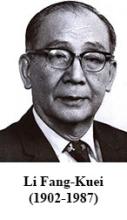
Professor Li’s academic résumé is a truly remarkable one. He came to the United States in 1924 where he studied linguistics at the University of Michigan. He completed his B.A. degree in two years specializing in Indo-European linguistics. In 1926, he began graduate studies in linguistics at the University of Chicago. He received his M.A. degree in 1927, and his Ph.D. in 1928. Professor Li’s dissertation was on a native-American language. Li Fang-kuei is generally considered among the top three Chinese linguists of his generation. He was a founding member of the Academia Sinica, the oldest Chinese academic institution—it is the Chinese equivalent of the American Academy of Arts and Sciences.
Professor Li joined the Department of Far Eastern Languages in 1949 and taught beginning Mandarin and graduate courses in Chinese linguistics. Professor Li was my first Chinese teacher. What I learned from him is the importance of rigorous attention to linguistic detail in reading texts, especially the phonological features of poetry.
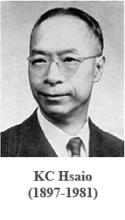
Professor K.C. Hsiao, like Professor Li, came to the United States for undergraduate study. He went to the University of Missouri in 1920. After a brief period studying journalism, Dr. Hsiao undertook the study of philosophy, earning both the B.A. (1922) and M.A. (1923) degrees in that field. During his time at Missouri Dr. Hsiao also studied psychology, German, French, and music. While a student in the United States, Dr. Hsiao played the violin in a symphony orchestra.
In 1923, Dr. Hsiao entered the graduate program in philosophy at Cornell University, where he completed his Ph.D. in 1926. Dr. Hsiao’s doctoral thesis, Political Pluralism: A Study in Contemporary Political Theory, was published in book form in 1927. This book has long been a standard in the field, and at one time was required reading at Oxford. It was reprinted as recently as 2000.
Professor Hsiao returned to China where he taught at various institutions until 1949 when he received an appointment at the University of Washington. During his tenure at Washington Dr. Hsiao taught undergraduate courses on Chinese political thought, Chinese social institutions, and graduate seminars on Chinese thought.
In 1960, Dr. Hsiao was one of ten scholars to receive from the American Council of Learned Societies the “Prize for Distinguished Scholarship in the Humanities.” This was the equivalent of the Macarthur grant of today. I remember that Dr. Hsiao used some of the funds to buy a Ford Thunderbird which he used park in front of Thomsen Hall. Dr. Hsiao lived only two blocks from campus, but he was quite proud to drive to campus in his shiny new car. Dr. Hsiao was only about five feet tall. One could barely see his head while he was behind the steering wheel.
Dr. Hsiao’s most famous scholarly work is a two-volume history of Chinese political thought. His collected works in nine volumes were published in Taiwan in 1982.
In 1979, Dr. Hsiao’s son David and his family established the K.C. Hsiao Fellowship, an annual scholarship awarded to advanced students in China Studies. Most of these fellowships have been awarded to students in our department.
Professor Hsiao was also a poet. He published two volumes of classical Chinese poems, many of which show wit and humor. After his retirement, Professor Hsiao also wrote poems in English that he called “doggerel verse.” He used to come by my office and give these to me. They have never been published. Here is a short one he wrote in 1980 when the University of Washington Club began to serve alcohol for the first time. It is titled “Bacchus Presides at U.W. Faculty Lounge.”
In the Lounge the prof’s cup runs over;
He goes to the classroom with a hangover.
His lecture becomes so intoxicating,
That students give it a hundred-proof rating.
The poem is signed “Bone-dry Retiree.”
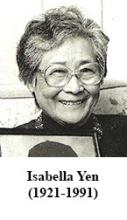
Another of my respected teachers is Professor Isabella Yen (1921–1991). Professor Yen was born in Beijing in 1912 into a family of scholars and intellectuals. In 1934, she was one of only six women admitted to Peking University where she majored in education and minored in English. In 1947, she went to the United States, ending up at the University of Michigan where she took up the study of linguistics. She eventually completed a Ph.D. in linguistics at Cornell. She came to the University of Washington in 1960 where she taught Chinese language and linguistics.
As an undergraduate, I had the good fortune to study Chinese under Professor Yen. Unlike many linguists, she did not believe that learning a language was simply a linguistic exercise. She was intent on ensuring that students knew culture as well as language. She spent much time with students, often inviting them to her home for parties and dinners. She also had amazing facility in both English and Chinese, and was able to explain almost any Chinese phrase with appropriate English equivalents.
Professor Yen was the granddaughter of Yen Fu, a famous translator who introduced the works of Western thinker such as Darwin, Huxley, and Mill to China. In 1991, Professor Yen and her husband Dr. Kao Shu-koo established the Yen Fu Translation Prize. This past year five of our students received this award.
There are many other distinguished scholars of Asian languages and literature whom I could mention. I hope I can pay tribute to them on another occasion. But I have only a limited amount of time for this talk, and I would like to devote the reminder of my time to address the students who are obtaining degrees from our department.
You all have studied one or more of the languages that we teach in this department. Although I will be accused of displaying Asian chauvinism, I think it is fair to say that you have studied some of the more difficult languages in the world. This is indeed the department of hard languages, and you should be proud that you have mastered at least one hard language.
However, I hope that all of you have done more than simply learn vocabulary, pronunciation, grammar, and script. Language cannot be studied in a cultural vacuum. We are a department of both language and literature, and I trust that all of you have had a chance to study some of the seminal works of at least one Asian literary tradition. The study of both language and literature not only sharpens one’s awareness of how words can be used and what they can do, but also provides insights into the cultural context of writing both past and present. That is why the Department requires both undergraduates and graduates, regardless of specialty, to take courses in literature, history, and culture.
You should also know that you are graduating from one of the most distinguished programs in Asian languages in North America. I have taught at several of the most prestigious universities in the United States, including Yale and Harvard, and I can tell you that the best of our students are equal to the best students of those institutions.
Not all of our students continue in the academic field. Most of them do not. Just thinking of students who studied for graduate degrees under my direction, I can count a goodly number who have pursued careers in law (one of my former students is Dean of a law school), law enforcement, the Foreign Service, business, the C.I.A., and even the National Security Agency, where one of my former Ph.D. students occasionally teaches classical Chinese.
You should be proud of the education you have received here, whether it is the B.A. degree, the M.A., or Ph.D.
I offer you all my warmest congratulations!
